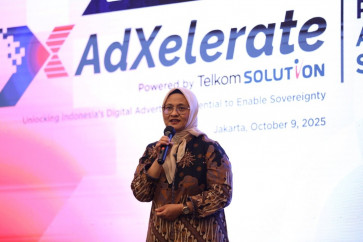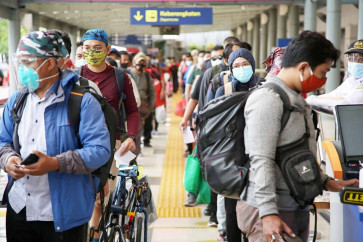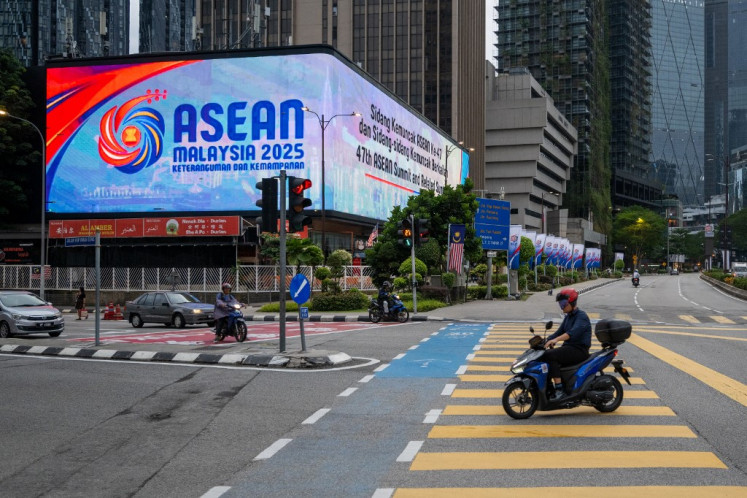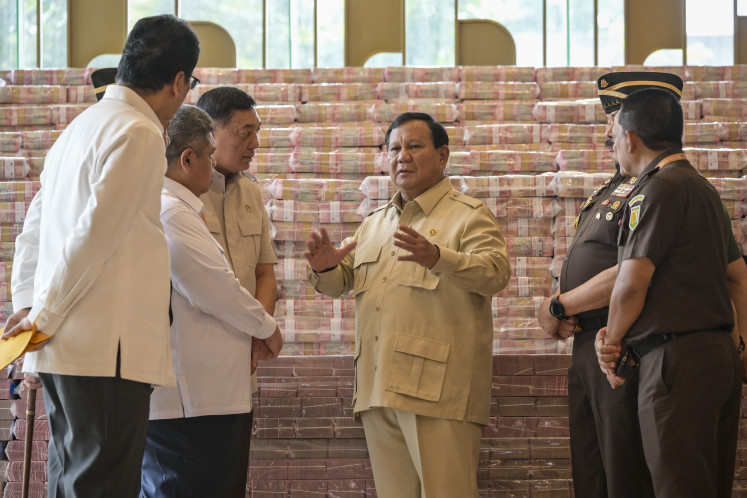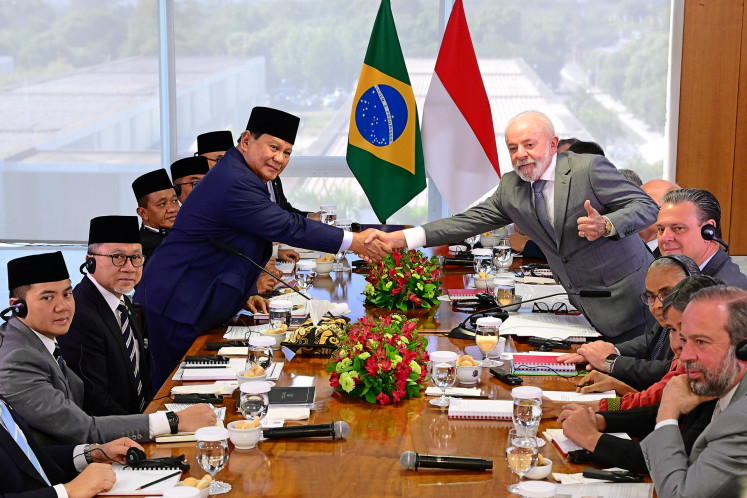Popular Reads
Top Results
Can't find what you're looking for?
View all search resultsPopular Reads
Top Results
Can't find what you're looking for?
View all search resultsRI rushes to court China for OBOR investment pledge
Indonesia is taking serious steps to follow up on a recent meeting between President Joko “Jokowi” Widodo and Chinese President Xi Jinping in regards to China’s pledge to make investments under its One Belt, One Road (OBOR) initiative
Change text size
Gift Premium Articles
to Anyone
Indonesia is taking serious steps to follow up on a recent meeting between President Joko “Jokowi” Widodo and Chinese President Xi Jinping in regards to China’s pledge to make investments under its One Belt, One Road (OBOR) initiative.
The two countries have committed to speed up the realization of several projects tipped to be financed under the initiative as officials have rushed to get them off the ground.
A month after the meeting between Jokowi and Xi on May 15, Coordinating Maritime Minister Luhut Pandjaitan flew to Beijing to hammer out the details of the projects with a delegation of Chinese officials who are slated to visit Indonesia on July 14.
Luhut said on Monday that he had recently reported to Jokowi the progress of the infrastructure investment by China and that China had a serious intention to speed things up.
“China is very serious [about investing here]. There will be a team from China that will come to Indonesia on July 14 to visit several regions,” said Luhut.
The team, said Luhut, would visit Halmahera in Maluku and North Kalimantan, Bali and North Sumatra.
Maluku and North Kalimantan are close to the disputed South China Sea where China is claiming most of the territory that is also claimed by ASEAN members, like the Philippines, Vietnam and Malaysia, to name a few.
Luhut refused to provide more details, only saying that the team would explore the possibility of investing in the construction of toll roads in northern Bali to help improve tourism infrastructure.
Since Jokowi took office in October 2014, Indonesia has been aggressively attempting to lure China to try to catch up with rivals Japan and South Korea, which were participating in the development of Indonesia’s economy.
China’s ambition to improve connectivity and development in Asia through the OBOR initiative is progressing in Indonesia with several projects currently in the pipeline, including the flagship high-speed railway connecting Jakarta and Bandung worth US$5.29 billion.
Last month, President Xi invited leaders from 28 countries, including Jokowi, to a summit to discuss the OBOR initiative. He pledged to add $14.5 billion to the existing Silk Road Fund.
During a bilateral meeting between Jokowi and XI on the sidelines of the event, Indonesia proposed to China projects located in North Sumatra, North Sulawesi and North Kalimantan.
Deputy Coordinating Maritime Minister for Infrastructure Ridwan Djamaludin said during their recent visit to Beijing Luhut and several other Indonesian officials and state enterprise executives had discussed the detailed preparations for the projects in the regions.
“What we discussed was a set of detailed concepts to integrate the development in a region instead of just talking about small and separate projects,” Ridwan said.
“Included in the discussion was the investment need, the type of projects and the work coverage.”
Ridwan cited a success story about Chinese investment in Morowali, Central Sulawesi, where the projects were integrated with regional development.
“The impact has already been felt with the billions of US dollars invested there. The economic growth of Central Sulawesi jumped by 9.98 percent last year,” he said.
The Shanghai Decent Investment Group, an investment unit of China’s privately owned Tsingshan Holding Group, and an Indonesian mining company, the PT Bintang Delapan Group, jointly developed the Indonesia Morowali Industrial Park (IMIP) in 2009, which covers 1,663 hectares.
IMIP’s first project was the $600 million smelter by a Chinese joint venture, Sulawesi Mining Investment Co., Ltd, with a capacity of 300,000 tons per annum of ferronickel. The facility started operations in 2015.
IMIP’s second project was another nickel smelter operated by PT Guang Ching Nickel and Stainless Steel Industry in 2016 that took a total investment of $1 billion.
Shortly after Jokowi’s visit to Beijing, China’s Tsingshan Group and Delong Group signed a memorandum of understanding (MoU) with IMIP to construct a carbon steel factory at a cost of $980 million.
Tsingshan Group also signed an MoU with the Bintang Delapan Group and IMIP to develop power plants with a combined capacity of 700 megawatts at a cost of $650 million. (dis)



